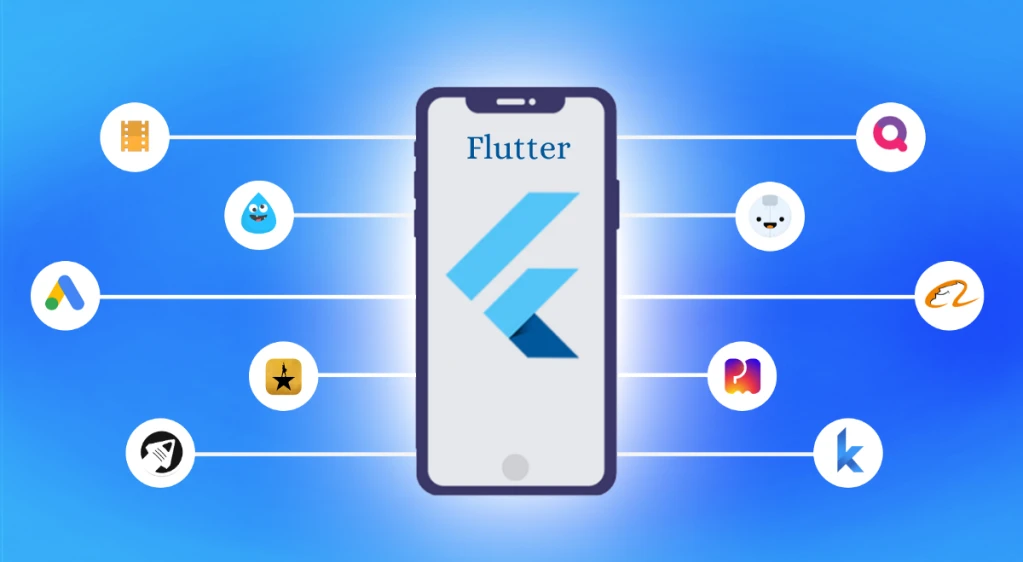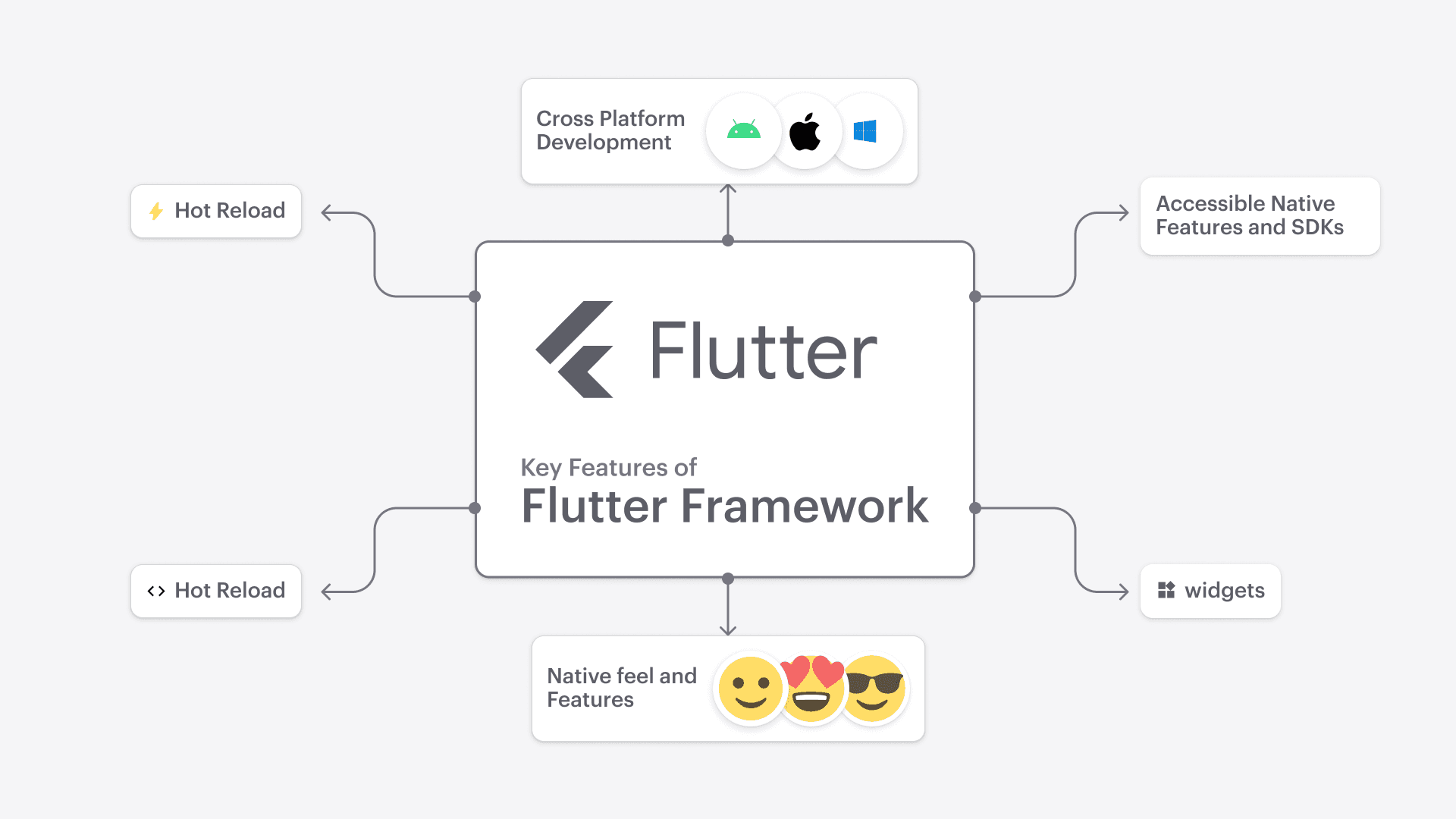
Flutter, the cross-platform application development framework, has forged a strong bond with its creator and supporter, Google. As an open-source project, Flutter is nurtured by the vibrant community and backed by the tech giant itself.
However, misconceptions and questions about Google's dedication to Flutter often arise, raising concerns among developers. In this blog, we will explore the inseparable relationship between Flutter and Google, debunking any doubts about the future of this powerful framework.
Let's delve into the truth behind Google's commitment to Flutter and understand why it remains a top choice for developers worldwide.
Will Google Cancel Flutter?
No, Google won't be cancelling Flutter. Flutter has gained a great momentum in just few years and many developers in open source community are contributing tirelessly to it. Google has also shared their vision of Flutter 2023 and they plan to even add more things and update Flutter to become more mainstream.
In recent years, Flutter has gained immense popularity in the mobile app development world. As an open-source framework created by Google, Flutter has become a go-to choice for developers to build high-quality, cross-platform applications.
However, some uncertainties and questions have arisen about Flutter's future, leading to speculations about whether Google will cancel the framework. In this article, we will delve into the stability and prospects of Flutter, examining Google's commitment to the platform and dispelling any concerns about its potential cancellation.
Google's Commitment to Flutter: Flutter has received tremendous support from Google since its inception. Google's consistent contributions to the Flutter community, regular updates, and active engagement in the development process highlight their dedication to the framework. This level of commitment signifies Google's belief in the potential of Flutter as a robust and sustainable solution for app development.
Stability and Future Prospects: As an open-source project, Flutter benefits from a vibrant community of developers who actively contribute to its growth. The framework's continuous improvement and growing ecosystem demonstrate its stability and potential for long-term viability. Flutter's active presence in major developer conferences and events further solidifies its future prospects.
Addressing Concerns and Rumors: Despite Flutter's positive trajectory, rumors and speculations may arise about its potential cancellation. However, such concerns are unfounded, considering Google's substantial investments in the framework and its ever-growing user base. There is no evidence to suggest that Google plans to cancel Flutter, making it a reliable choice for mobile app development.
In conclusion, Flutter remains a robust and thriving platform backed by Google's unwavering commitment. The stability, continuous improvement, and active community involvement indicate a bright future for Flutter. Developers can rest assured that Flutter is here to stay, offering an excellent opportunity to build powerful and cross-platform applications. Embrace Flutter's potential, and venture into a world of seamless and efficient app development.
Is Google Abandoning Flutter?
No, Google is not abandoning Flutter. In fact, Google's commitment to the Flutter framework remains strong, and the platform continues to receive substantial support and updates from the tech giant. Flutter, an open-source framework for cross-platform app development, has been flourishing under Google's guidance and has become increasingly popular among developers worldwide.
Despite rumors and speculations, Google's dedication to Flutter is evident through its consistent support and contributions to the framework. Here's a closer look at three key aspects that demonstrate Google's ongoing commitment to Flutter:
Active Development and Updates: Google continues to actively develop Flutter, releasing regular updates and improvements to enhance the framework's capabilities. The Flutter team at Google consistently works on adding new features, fixing bugs, and optimizing performance. These updates not only showcase Google's commitment to the project but also ensure that developers have access to the latest tools and functionalities to build high-quality apps.
Growing Flutter Community: Google's efforts have contributed significantly to the growth of the Flutter community. The framework has garnered immense popularity among developers, leading to a vibrant and active community that actively contributes to its development. Google's support extends beyond just maintaining the framework, as they actively engage with the community through events, forums, and conferences, fostering a collaborative and innovative ecosystem.
Flutter's Strategic Importance: Flutter holds strategic importance for Google, especially concerning its ambitions for cross-platform app development. As the demand for robust, visually appealing, and performant mobile applications grows, Google recognizes Flutter as a valuable solution for developers to build applications for multiple platforms. With Flutter being integrated into various Google products and services, such as Google Ads and Google Pay, it further solidifies Google's commitment to the framework's long-term success.
In conclusion, Google's dedication to Flutter is evident through its active development, strong community engagement, and strategic positioning. As the framework gains even more popularity, it is clear that Google sees Flutter as a key player in the future of mobile app development. Developers can confidently embrace Flutter, knowing that Google is firmly behind this versatile and powerful framework.
Does Anybody Use Flutter?
Certainly! Over 240k developers across globe use Flutter to build apps. Flutter has garnered widespread adoption among developers and companies, making it a popular cross-platform app development framework. Renowned companies like Google, Alibaba, and eBay have embraced Flutter, highlighting its reliability and efficiency. The framework's active community fosters knowledge sharing and continuous improvement.
Successful apps developed with Flutter, such as Google's Ads app and Alibaba's Xianyu app, demonstrate its capabilities in delivering seamless user experiences. Hookle, a popular social networking app, also relies on Flutter for efficient and rapid development.
Flutter's adoption continues to rise, with developers favoring it in various surveys. The framework's extensive plugin system, community support, and frequent updates contribute to its appeal. In conclusion, Flutter's popularity, real-world success stories, and increasing adoption confirm its position as a leading choice for cross-platform app development.
How Much Does Google Flutter Cost?
Flutter is 100% open source and costs nothing. Google Flutter is an open-source framework, which means it is completely free to use for app development. There are no direct costs associated with using Flutter itself. Developers can freely download and use Flutter's SDK, tools, and libraries without any licensing fees.
However, while Flutter is free, there might be other costs related to app development. These costs could include:
Developer Resources: The cost of hiring developers or allocating internal resources to work on the Flutter project.
Testing and Quality Assurance: Expenses for testing the app on various devices and platforms to ensure its stability and compatibility.
Third-Party Services: If the app requires integration with third-party services, there might be associated costs for using those services.
Deployment: Publishing the app on app stores like Google Play Store and Apple App Store may involve one-time or recurring fees.
On the bright side, the Flutter community offers a wide range of free resources, open-source packages, and widgets, which can significantly reduce development costs. Additionally, Flutter's hot-reload feature speeds up development, potentially saving time and money during the development process.
Overall, Flutter's cost-effectiveness, coupled with its extensive community support, makes it an attractive choice for building high-quality, cross-platform apps without substantial financial investments.
Is Flutter for iOS or Android?
Flutter works for both iOS or Android. It is a versatile and powerful cross-platform framework that supports both iOS and Android app development. Unlike traditional native development, Flutter allows developers to write a single codebase that can be used to build apps for multiple platforms.
By utilizing the Dart programming language and Flutter's comprehensive set of widgets, developers can create visually appealing and performant apps that run seamlessly on both iOS and Android devices. The "write once, run anywhere" strategy of Flutter drastically lowers programming time and effort.
One of the key advantages of Flutter is its ability to achieve code sharing across platforms. This means that a substantial portion of the code can be reused for both iOS and Android versions of the app, resulting in faster development cycles and easier maintenance.
Moreover, Flutter provides a rich set of platform-specific widgets and APIs, allowing developers to maintain a native look and feel for each platform while sharing business logic and UI elements. This combination of code reusability and native-like performance makes Flutter an ideal choice for developers aiming to create high-quality apps efficiently and cost-effectively.
© 2021-25 Blupx Private Limited.
All rights reserved.





